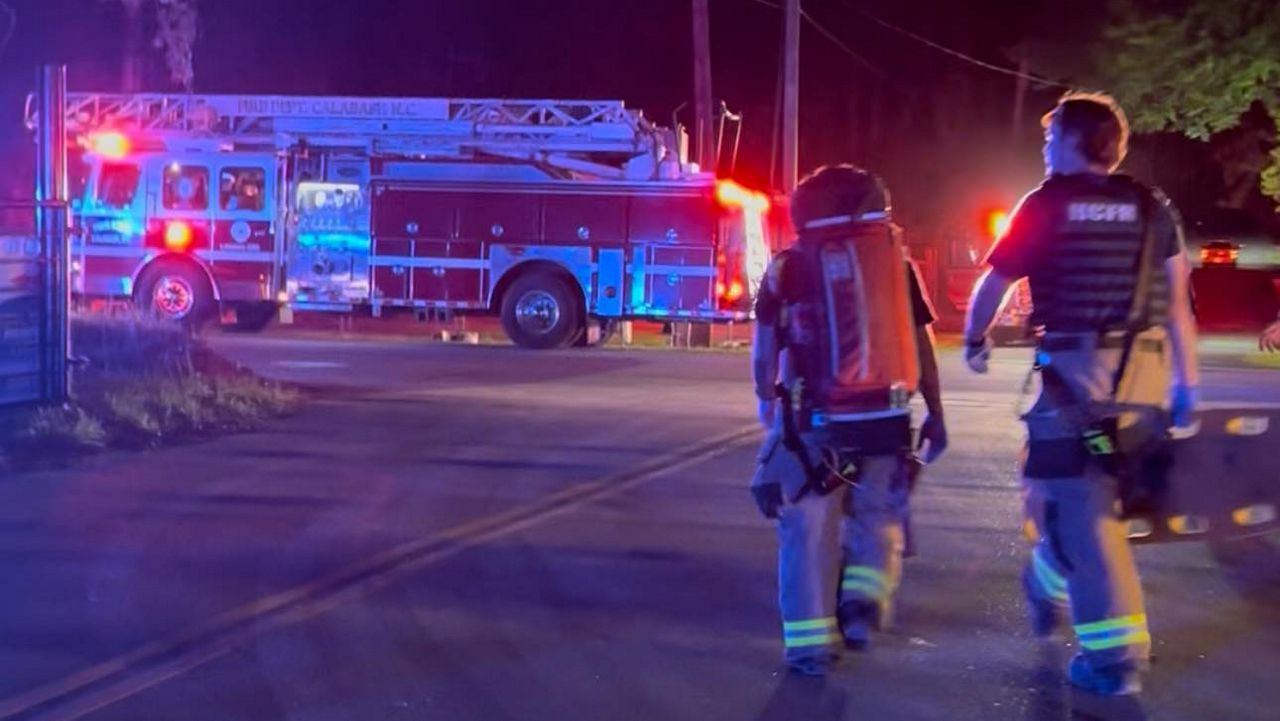GREENSBORO, N.C. — Some families believe a law intended to protect nursing homes in North Carolina may have unintended consequences.
The Emergency or Disaster Treatment Protection Act that was signed by Gov. Roy Cooper in 2020 was designed to protect health care facilities from liability during the COVID-19 pandemic. The family of Rick Goforth said the law is being improperly used by nursing homes to shield themselves from lawsuits in any cases of neglect, not just COVID.
According to Goforth’s daughters, and a report from the North Carolina Division of Health Service Regulation, Goforth suffered a fractured right wrist from an unwitnessed fall at Carriage House Senior Living Community.
“We fought for him, we asked questions, we emailed, we called, we did meetings. Like I don't know what else other than removing him from there, which we didn't think was an option, we could have done," said Kristin Goforth, daughter of Rick Goforth.
His family says he was never prone to falls before. They believe his death at Hospice Home in High Point is a result of the treatment from Carriage House.
“He was taking Xanax ... three times a day, and they found out that was not what he should have been doing, and we got him off of that,” Kristin Goforth said.
Due to the 2020 law, the sisters said they don’t have legal recourse against the facility for what they believe was inadequate care.
“It felt like medically for his safety this was our only option to put him somewhere,” Lauren Goforth-Cox said.
They hope sharing their father’s story will help convince lawmakers to reconsider the immunity the law offers.
Carriage House Senior Living Community gave this statement:
“Although we do not comment on our current or past residents, we want to be clear that the safety and well-being of all of our residents is our top priority. Our dedicated personnel are well-trained and committed to providing the highest quality of care.”
This law has three elements, and a prospective portion and a retroactive portion. The first element is the health care facility, provider, or entity is arranging for health care services during the COVID-19 Emergency Declaration.
The second element is that health care services were at least directly or indirectly affected by decisions or activities as a result of the pandemic.
The third element is that the health care facility must have been providing the health care in good faith.
An attorney for the Goforth family, Kelley Johnson, with the law offices of James Scott Farrin, says the family’s case argues that the law must be followed and that the industry must prove they have met all three of those elements to enjoy immunity.
Johnson says Carriage House Senior Living, in defending its position, argues that the statute provides blanket immunity for the industry no matter what.
And she says doing this case means a lot to not just their clients but others in the state.
“Allow our clients to hopefully seek the justice they're seeking in the name of their loved one. And then to be able to facilitate that from happening to anyone else. It’s to make sure the laws of North Carolina are just and that North Carolinians have the right to open court and to pursue justice as they're entitled to,” Johnson said.
They are currently in court proceedings and are waiting for the court of appeals to render an opinion.








)